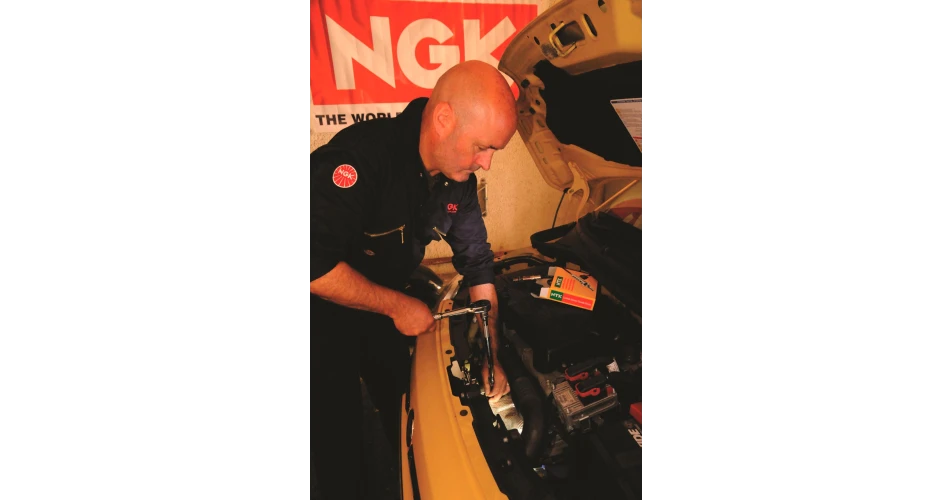NGK Spark Plugs is highlighting the very significant opportunities that aftermarket parts suppliers and garages can take advantage of with it range automotive sensors.
The company has a pedigree in sensor technology that can be traced back as far as 1982 and introduced one of the first aftermarket sensors programmes in 1997. NGK is the world’s largest manufacturer of Lambda sensors and supplies a comprehensive range of Lambda sensors to the aftermarket under the NTK brand name. The company is also an original equipment (OE) supplier to many of the world’s leading vehicle manufacturers.
Mark Hallam, NGK Spark Plugs Marketing Manager, said, “NGK has enjoyed a long and highly successful relationship with our distributors and their garage customers with our spark plug and glow plug ranges, but there are also opportunities for them to develop increased business by stocking our NTK range of Lambda and other engine management sensors including exhaust gas temperature sensors (EGTS), a product that they currently might not know too much about and may not realise the potential it offers.” He added, “NTK Lambda sensors always match the vehicle manufacturers’ specifications. All are factory tested as part of the VMs’ specification. They have OE connectors as standard, so no crimping or soldering is required. Our NTK NOx and EGTS sensor ranges also offer the same benefits.”
NGK says factors can help educate garages about sensor opportunities by encouraging them to fit a new NTK Lambda sensor whenever they replace a vehicle’s catalytic convertor. A worn or failed sensor can result in drastically reduced control of the fuelling system which could lead to increased fuel consumption, uneven running, generally poor performance or failure of an emission test.
A malfunction of an associated part may directly affect the performance of a sensor so NGK recommends that the function of the sensor is checked every 20,000 miles or annually. An oscilloscope and gas analyser is a much more accurate way of assessing sensor performance than relying on fault codes alone. NGK recommends that garages look for slow response times, output range and heater function.
Contaminants from poor quality oils and fuel which remain in the exhaust gases can become deposited on the sensor element affecting its operation. Even coolant from a leaking head gasket can reach the element and these factor can impact on performance.
When it comes to Lambda sensors replacement many workshops are unsure of whether to choose ‘Universal or Bespoke Lambda sensors. NGK says a ‘universal’ Lambda sensor is designed to cover as many applications as possible by splicing in the connector from the unit being replaced. In theory this sounds like a good idea. In practice the potential for a mismatch with the vehicle's system or subsequent premature failure is very high.
Apart from the more obvious choices of number of wires and whether it's a zirconia or titania type there are several base sensor designs to be considered with differing characteristics including heater element performance, response time performance and even internal electrical grounding.
Once the correct choice has been made garages need to worry about making sound electrical connections and ensuring that they marry the lead wires correctly. Sensor manufacturers' wiring colours differ so garages cannot always simply join the matching colours.
For some sensors soldering the leads together is out of the question as they may need to 'breathe' through the tiny gaps in the lead wires and poor quality crimping can lead to water or oil ingress which can damage the sensor or affect its performance.
Apart from these factors, if garages have not disconnected the multiplug when splicing in the new unit they run the risk of missing such problems as corroded or damaged connector pins. In addition many vehicles now use wide band sensors and for this type there is no substitute other than the correct OE specification item.
For these reasons NGK says factors should encourage garages to always select a bespoke OE quality Lambda sensor and steer well clear of the problems that ‘universal sensors’ can often bring.
Installers can learn all about lambda sensors and other product via the NGK interactive e-learning facility which is available on the website www.ngkntk.co.uk
